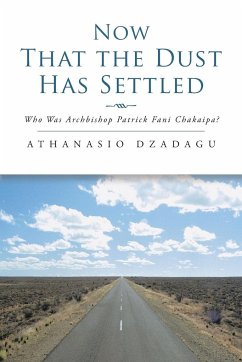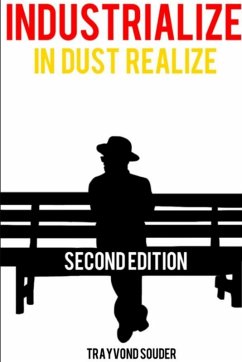
Now That the Dust Has Settled
Who Was Archbishop Patrick Fani Chakaipa?
Versandkostenfrei!
Versandfertig in 1-2 Wochen
25,99 €
inkl. MwSt.
Weitere Ausgaben:

PAYBACK Punkte
13 °P sammeln!
In this book, I try to explore why one section of the Catholic Community connected with the late Archbishop Chakaipa was overtaken by great remorse when he died, while another went into jubilation. This leads me into the examination of what kind of person Archbishop Chakaipa was. I do this in the context of his family background and his priestly and Episcopal ministries. He was of the Unendoro clan, with a history tracing back to Karanga roots. In his Seminary years, he wrote five Shona novels which became very influential in developing Shona literacy. He earned enduring respect across the ent...
In this book, I try to explore why one section of the Catholic Community connected with the late Archbishop Chakaipa was overtaken by great remorse when he died, while another went into jubilation. This leads me into the examination of what kind of person Archbishop Chakaipa was. I do this in the context of his family background and his priestly and Episcopal ministries. He was of the Unendoro clan, with a history tracing back to Karanga roots. In his Seminary years, he wrote five Shona novels which became very influential in developing Shona literacy. He earned enduring respect across the entire Zimbabwean nation for this achievement. Within Church circles Archbishop Chakaipa's name is synonymous with the policy of self-reliance, which was his signal achievement in the Archdiocese of Harare. He was determined to see the development of indigenous Zimbabwean writers, frustrated that the world of ideas in Zimbabwe was dominated by Eurogenic (of European origin) missionaries. In his view such Eurogenic intellectual domination undermined Zimbabwean and African independence. In the book, I argue that while Archbishop Chakaipa was a hero, indeed one deserving of canonisation as a Catholic saint, true respect for him should also acknowledge his negative qualities.













